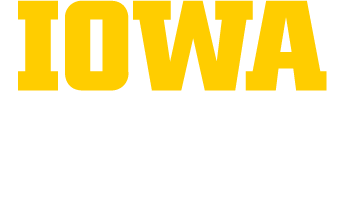The Bucksbaum Early Entrance Academy empowers high-achieving students to begin full-time on-campus study at the University of Iowa who:
- graduate high school in less than 4 years, OR
- skipped a grade in either elementary school or junior high/middle school and graduated high school.
If you think you have to attend twelve years of schooling to go to college, think again. We support you, and a cohort of your peers, every step of the way.
Are you ready? This website will provide you with more information to help you answer this question.
About the Program
Program participants will be full time students at the University of Iowa, a top research university. The Belin-Blank Center provides support to the Bucksbaum Academy cohort through a merit scholarship, individual weekly meetings and seminars, advocacy across campus, cultural and recreational events, a program-specific resident advisor in a desirable residence hall, and access to our staff and resources.
We aim to create a community across all the Bucksbaum Academy cohorts.
The Belin-Blank Center has been facilitating early entrance to college since the late-90s, so we have the expertise. Research suggests that accelerated college students have higher GPAs, are awarded more honors, gain more recognition in extracurriculars, have more citations of their work, and acquire more prestigious jobs than non-accelerated older peers. Overwhelmingly, individuals in longitudinal studies are satisfied with the choice to be accelerated from academic, social, and emotional perspectives.
For more information about academic acceleration, specifically early entrance to college programs, see A Nation Empowered .
Are You Ready?
The Belin-Blank Center considers a variety of aspects in admitting students. A minimum of two years of high school with a GPA > 3.50 is required, and some general guidelines are a 30 or above ACT OR a 1410 or above SAT composite score, evidence of academic rigor through Honors and/or AP courses, and academic accomplishment. Responses through the application and interview are very important in final decisions.
Parents/Guardians
We want to partner with parents/guardians, so students are successful in college. Although it might seem strange for a student to start college early, research has consistently found that there are many long-term benefits to early college entrance.
Once your children enters the program, they can always return home to visit, but there’s no doubt that going to college is a big change, whether they go early or after their senior year. Parents/guardians are included in the Information Session, Visitation Day, interview, and the welcome to campus event. We also send a monthly newsletter to all parents/guardians. You are encouraged to contact the Belin-Blank Center at any time with questions or concerns. To learn about what your child should do to prepare to apply for the Bucksbaum Academy, please see the student sections above. Many times, high school counselors have excellent information and resources to help students and families prepare for college.
Here are some thoughts from parents/guardians of students in the Bucksbaum Academy:
- “We are quite relaxed having our son in the program. If he were a traditional UI freshman, he would be without the excellent supervision and guidance that the Belin-Blank staff is providing him.”
- “The staff are supportive and act as advocates for the students. They (students) are better off than if they entered as traditional freshmen.”
- “This has given (our child) the opportunity to save an entire year that would have otherwise been largely wasted.”
- “Our son needed to be in a university setting-he was ready academically and emotionally for it. This is a great program…do it!”
- “The program works! She has adapted to the different teaching styles of her teachers and the different learning that goes on compared to high school. She is very happy.”
- “Our daughter was home last weekend. As I drove her back to campus she said, ‘I’m so glad that I’m not in high school anymore.’ Enough said!”
Counselors and Teachers
If a student expresses an interest in attending college early, what would you do? We recommend that you consider these questions and use them in discussions with said student as they finalize a decision about early entrance into the University of Iowa.
- Will the student have enough credits to graduate by the time the student wants to leave?
- The student may want to come back for events throughout the year, such as prom or the graduation ceremony. How will this be handled? Are they eligible to serve as a valedictorian for the class?
- How will the local scholarships handle this student’s applications? Will you recommend them for scholarships when they enter Iowa or when their cohort graduates high school?
Interested in Applying?
Our Bucksbaum Early Entrance Academy empowers advanced students to begin full-time on-campus study at the University of Iowa at 16 or 17 years of age. Here are some points to consider and help you be ready.
- Work with your school counselor to make sure you are meeting the specific requirements of the collegiate major you are considering at Iowa. Refer to The University of Iowa's first year admissions requirements for more information.
- Take the PSAT, even if you do not plan to take the SAT. The PSAT can qualify you for the National Merit Scholarship, National Achievement Scholarship and National Recognition Program Scholars.
- Register to take the ACT or SAT by November, if you haven’t taken one yet or if you want to try to improve the score you received. Your school counselor can help you find web sites, books, or classes to help you prepare for the tests. UI scholarships require either an ACT or SAT score.
- Attend a campus Visitation Day to learn more about the program, visit the campus, and meet with the staff members at the Belin-Blank Center.
- Talk with your school counselor about how your school and community will handle scholarships for you – are you eligible without being a senior?
- Refer to the pdf in the “Suggestions to Prepare for Applying” section below for more ideas/suggestions to consider
- Familiarize yourself with the application process.
- Familiarize yourself with information related to the scholarship and financial aid.
Preparing to Apply
The Belin-Blank Center has drafted a PDF, Suggestions to Prepare for Applying. This document provides a host of ideas and suggestions for interested students who are planning to apply for the Bucksbaum Early Entrance Academy. WE DO NOT EXPECT students to complete this entire list to be accepted into the Bucksbaum Academy.
How to Apply
We have tried to make the application process very straightforward, but planning ahead is essential. Here's all the information you'll need to submit your application.
Application & Selection Process
- Apply to the University of Iowa. After submitting your general student application, a supplemental Bucksbaum Academy application will be added to your admissions profile. Please reach out to academy@belinblank.org to confirm that the supplemental application will be added to your account. The deadline for this application is January 31.
- The Belin-Blank Center will interview qualified applicants.
- The Belin-Blank Center will send the names of the selected students to UI Admissions.
- UI Admissions will admit the cohort of students to the University and inform the Belin-Blank Center when the process is complete.
- Applicants will learn of their admission by a target date of March 1st and must accept or decline by May 1st.
UI Office of Admissions
For information or questions about admission to the University of Iowa, please visit the Office of Admissions webpage.
After You're Accepted
Scholarship Information
Mary Bucksbaum Scanlan’s endowment of the Bucksbaum Early Entrance Academy allows the Belin-Blank Center to provide merit scholarships. Students who are U.S. citizens or permanent residents and who have been selected for the Bucksbaum Early Entrance Academy at the Belin-Blank Center are eligible for this scholarship. There is no separate application for the scholarship. It is paid in two installments (half is paid at the start of the fall semester and half is paid at the start of the spring semester).
More detailed information regarding amount and conditions of the scholarship can be found in the Bucksbaum Early Entrance Academy Program Handbook.
Financial Aid
The Free Application for Federal Student Aid (FAFSA) determines your eligibility for grants, loans, work-study, and need-based scholarships. Students are encouraged to file an application as soon as possible after it opens on October 1. The deadline for priority consideration is December 1.
Read more on the Office of Student Financial Aid's new student website.
Housing
First-year students live in Daum residence hall. More detailed information regarding the residential aspect of the program can be found in the Bucksbaum Early Entrance Academy Program Handbook.
Second-year students (and beyond) may live in any university residence hall or find off-campus housing.
For more information about the residence halls, visit the University of Iowa's Housing website.
UI Honors Program
All students who are accepted into the Bucksbaum Academy have the opportunity to apply to the UI Honors program. Because involvement in Honors is an exciting opportunity with many benefits, the Bucksbaum Academy has developed a strong partnership with this program.
For more information about the UI Honors Program, visit their website.
Meet Our Alumni
Hear more about life as a Bucksbaum student and beyond, from our Alumni Mentors.




